The List: Best Small Dog Breeds, According to Canine Experts
1. Toy/Miniature Poodle
While a standard poodle can reach 70 pounds, toy and miniature varieties remain much smaller throughout their lives. But just like their larger relatives, these dogs are smart and relational and make great pets. “Toy and Miniature Poodles are clever, sophisticated dogs that can pull off the most elaborate, iconic haircuts,” says Nylabone. “Both are highly intelligent, trainable dogs that excel in athletics. While the Poodle is often associated with dog shows, these curly-coated, muscular dogs are also great companions to welcome into your home.”
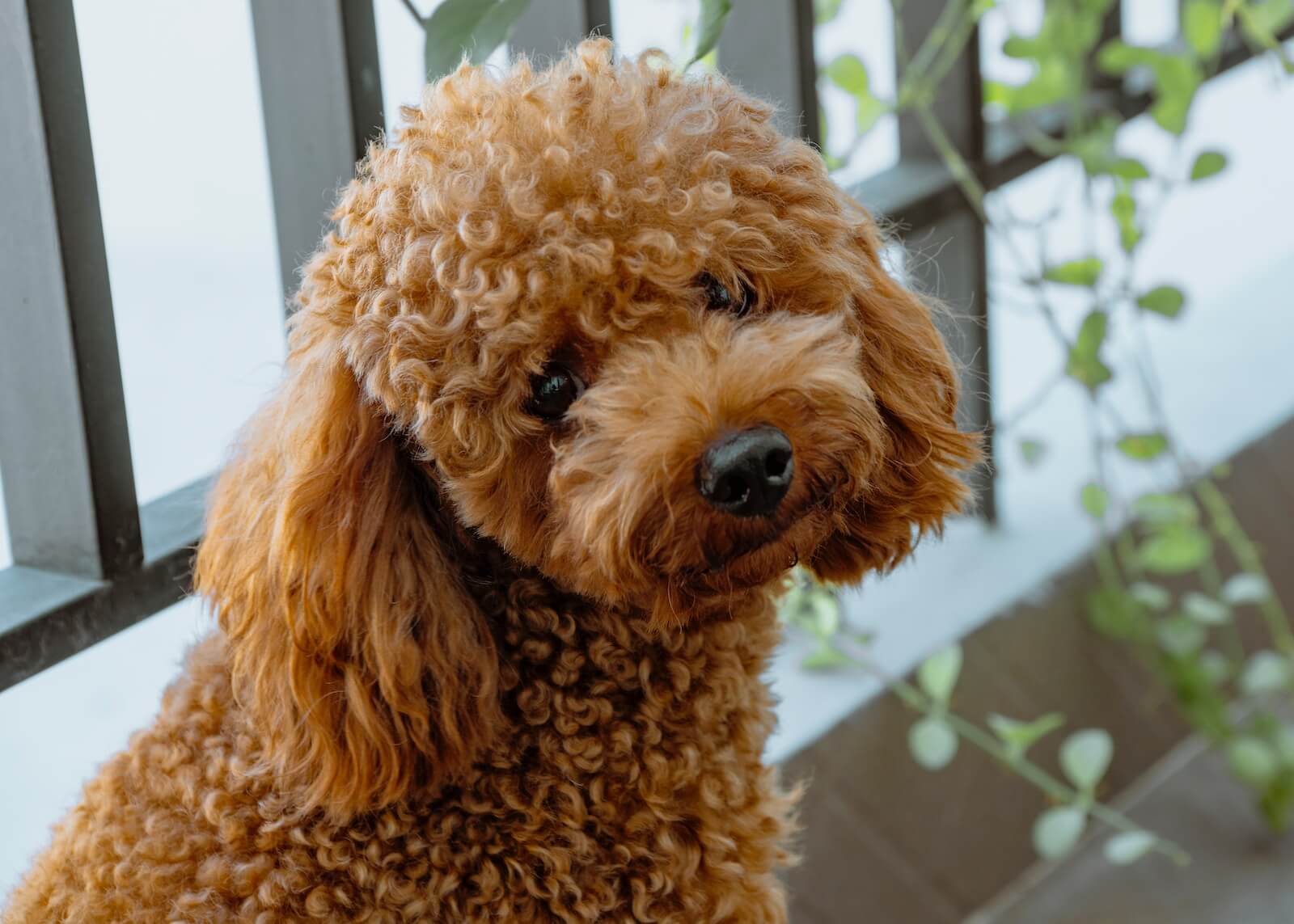
“The poodle comes in three sizes: standard, miniature, and toy,” lists Southern Living. “The standard is too large to be considered if you want a small dog, but the miniature or toy versions can be just the right size. Poodles are among the smartest of dog breeds and can make an excellent addition to the family. They are easy to train, hardworking, and a tough competitor in sports.”
If you struggle with allergies, poodles are likely to be much friendlier to your system than most dog breeds. With a low-shedding coat that mimics human hair, toy and mini poodles make for a perfectly sized hypoallergenic pet. “Mini poodles stand at 15 inches or less and tend to weigh a maximum of 15 pounds,” explains Woman’s Day. “Their curly, low-allergen coat makes them ideal hypoallergenic dogs.”
2. Dachshund
Everyone knows the dachshund for their distinct long bodies. But what you may not know is that this breed is an affectionate, fun, and loyal pet in a small, short-legged package. “The miniature version of this breed weighs under 11 pounds. They are curious, and extremely friendly,” says Woman’s Day. “They don’t love long distance runs or swims, but other than that, they’re ready to play all day long.”
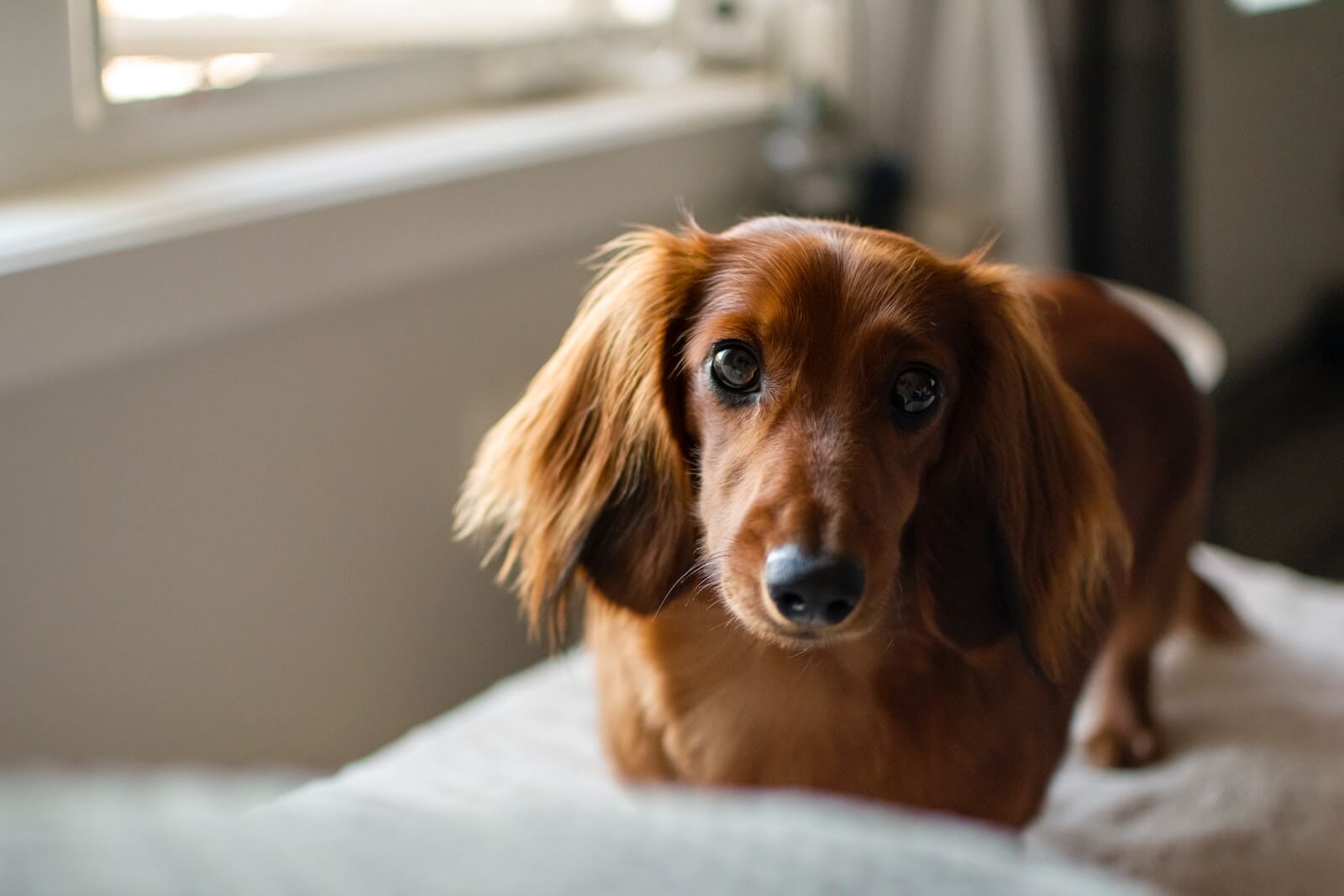
“Dachshunds have unmatched self-confidence and courage, a reminder that they were bred to fight the fearsome badger,” explains Nylabone. “They have a passion for their pet parents, are loyal protectors of their family, and can be stubborn at times. This breed is partly hound and partly terrier, making them an independent and feisty dog. They are extremely good looking and amusing dogs.”
While much smaller than your typical guard dog, dachshunds are determined to keep their family safe. “These smart watchdogs, commonly known as wiener dogs because of their elongated bodies, were bred more than 600 years ago in Germany as badger hunters,” adds The Pioneer Woman. “They’re loved for their big personalities and distinctive look!”
3. Pug
Pugs are beloved by all for their distinct facial features. With a fantastic personality to match, they make for a widely adored breed. “The Pug is one of the most recognized dogs in the world, with its wrinkled brows, glimmering eyes, and curly tail,” notes Nylabone. “The Pug is affectionate, playful, and even-tempered. This lovable breed is courteous to other people and animals and gets along with both kids and adults—making them a universal favorite.”
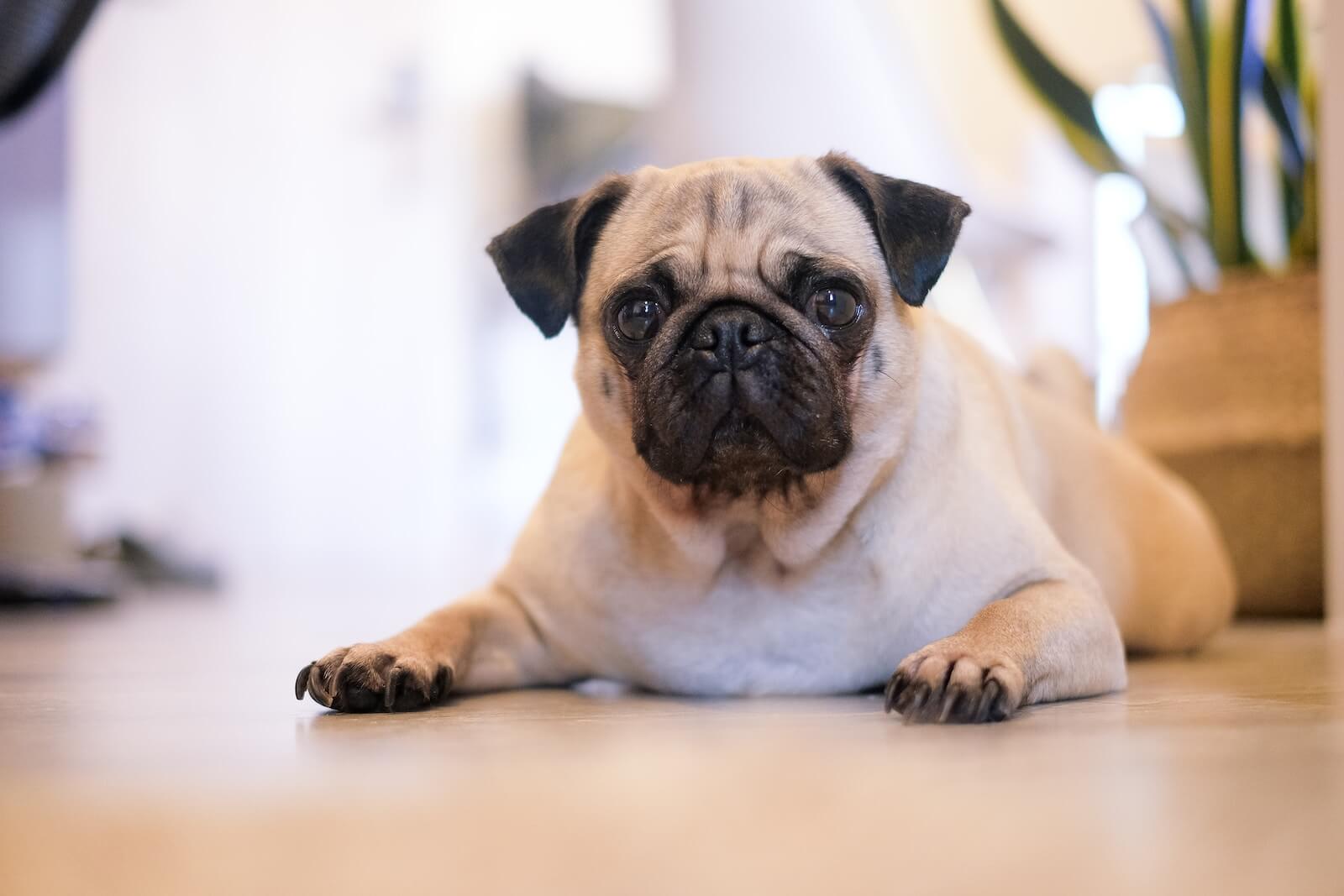
“There are a few theories based on the origin of the name ‘Pug,’ like that it could be based on the Latin word ‘pugnus,’ meaning ‘fist.’ This is due to the idea that the breed’s face looks a little like a tightened fist,” says Woman’s Day. “But no matter their name or scrunched up expressions, these cute 14-18 pound canines just want to please people all day, every day.”
If you have kids or other animals in the house, your pug will likely make fast friends with them all. “The fun-loving Pug is generally a real charmer who tends to get along well with everyone she meets — including children and other animals,” adds Southern Living. “She is not a jogging partner, but she does typically enjoy going out wherever you might go.”
4. Pomeranian
This pocket-sized pup looks like a cloud on legs walking down the sidewalk. Weighing in at less than 10 pounds, they are a beautiful breed that’s well-suited for an owner who wants an affectionate dog requiring little exercise. “Fabulously fluffy, a Pomeranian’s personality is just as adorable as you’d expect. These fun little pups don’t require much exercise and are perfectly content playing indoors,” explains Apartment Therapy. “They’re sweet, loyal and love it when you lavish them with attention.”
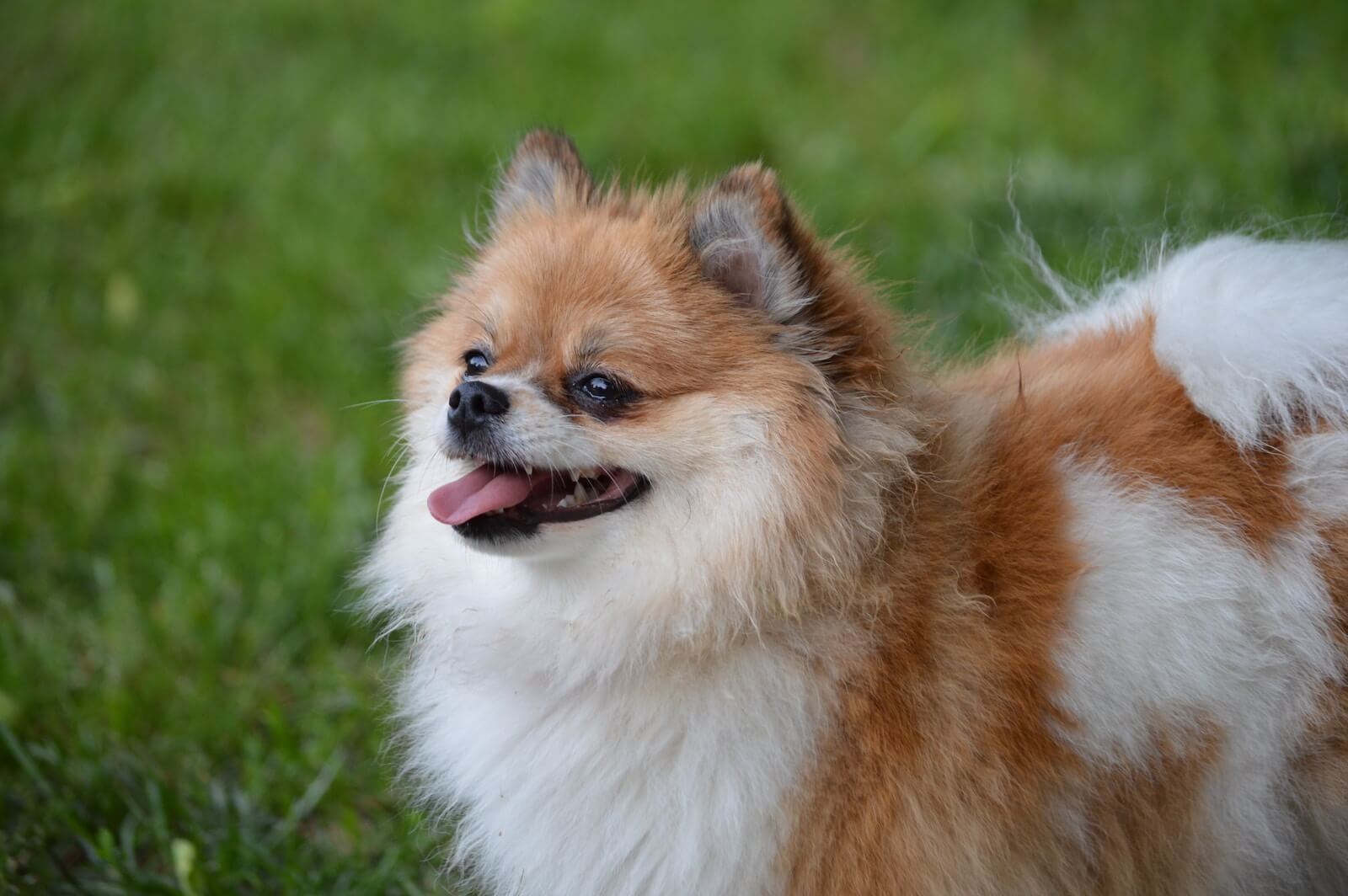
“Pomeranians look like a cross between a stuffed animal and a tiny lion, thanks to their long, fluffy coat,” says The Spruce Pets. “They tend to be alert and sometimes bossy dogs with an intense loyalty to their loved ones. They need consistent training and boundaries to keep their strong-willed spirit in check. Due to their small size, a couple daily walks and playtime should be enough to meet their exercise needs.”
If you tend to travel frequently, a Pomeranian is a great choice to bring along for the journey. “The Pomeranian is a confident and lively dog that you can take anywhere, in your handbag. This pup tops out just seven pounds, so he’s a cinch to bring anywhere you want to go,” claims HGTV. “He’s fluffy and adorable, too, so it’s no wonder the Pomeranian has become so popular in recent years.”
5. Maltese
If you want a dog that will remain affectionate and relational throughout its life, look no further. A Maltese is a dog that bonds tightly with its owner and loves attention. “The Maltese, bred as a companion dog, often retains a puppy-like attitude all throughout his life,” says Southern Living. “He is definitely a looker, with those big button eyes and silky coat.”
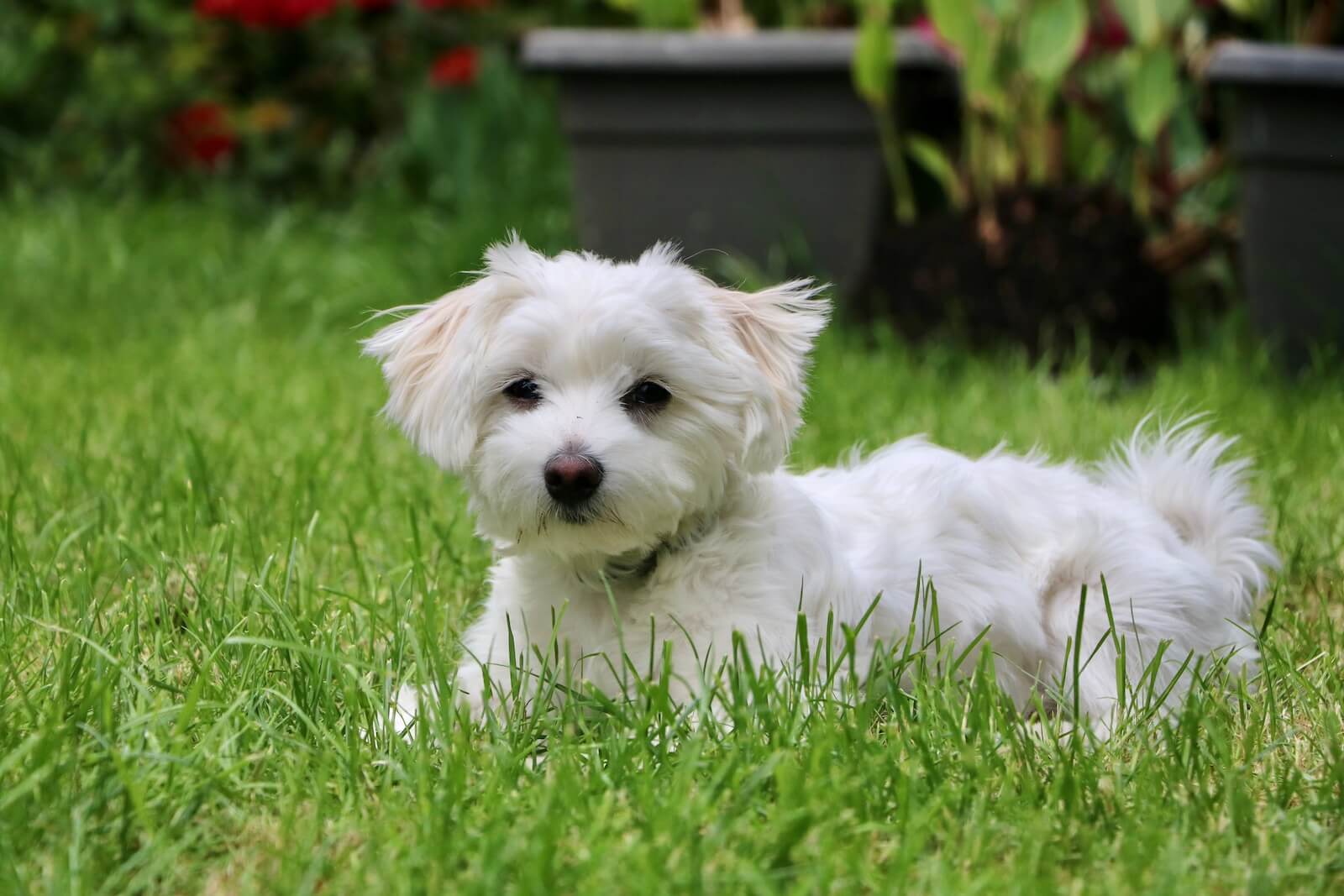
“Although it’s tough to distinguish between all the small white dog breeds out there, this one counts as one of the oldest,” adds Good Housekeeping. “Maltese have entertained their owners for thousands of years. They’re so lovable that the ancient Greeks even built tombs in their honor.”
The Maltese has a great personality, but they are also beloved for their striking (and low shedding!) fur. “The Maltese breed can weigh up to seven pounds, but a lot of that weight might actually come from their long, silky coat, which usually tends to touch the floor,” notes Woman’s Day. “Despite their flowing hairstyle, they don’t typically shed.”
You might also be interested in:
- Best Hypoallergenic Dog Breeds
- Best Dog Breeds for Families
- Best Medium-Sized Dog Breeds
- Best Large Dog Breeds
- Best Miniature Dog Breeds
Sources:
- The Pioneer Woman
- Nylabone
- AZ Animals
- Southern Living
- Good Housekeeping
- Newsweek
- Woman’s Day
- Apartment Therapy
- The Spruce Pets
- HGTV
Note: This article was not paid for nor sponsored. StudyFinds is not connected to nor partnered with any of the brands mentioned and receives no compensation for its recommendations. This article may contain affiliate links.
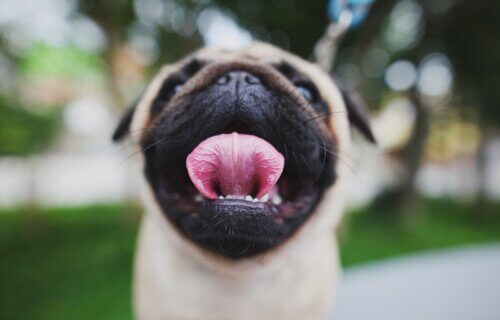
Wheres the Shihtzu. They are very big right now .i have had them for over 30 years .they don’t bark like most of the dogs on this list.dont need someone all the time.they children and they’re not biters. They don’t shed hair all over the place.so where are they.oh an one of the oldest breeds.
Do you know where I can get one?
Where is the newest breeder for Shitzu’s or a mix?
The rest of these dogs are not all big barkers either. I have two of the breed’s listed in the list and have no issues whatsoever with excessive barking.
They love children was supposed to be in my top comment
Strongly disagree with the Pug and Dachshund inclusions. Expensive potential respiratory and back problems respectively. At least you didn’t include the French Bulldog that so many social media attention seeking airheads have to pose with. These are all genetic monsters that exist only to satisfy human vanity. 45 years of shelter rescues, no regrets.
I’ve had pugs for 30 years along with other breeds. My pugs have bar far been the friendliest, non territorial. Of course, with their scrunched nose they can not tolerate heat. Other than that, I’ve never had any health issues with mine. My last just passed at 18.
Of course you ran a shelter or worked in that setting a lot of rescues are aggressive. I’ve seen it with my own two eyes. My miniature Dachshund is the sweetest and has been since the moment I met him and brought him home from the breeder.
A vet clearly did not write this article or approve of it…pugs have serious health issues. First surgery as a puppy will be a 5-8k brachycephalic correction
Untrue. In my experience as a pug lover, the only surgeries mine had were to be spayed and neutered. Perhaps yours was from a bad breeder ?
I’ve had pugs. No problems with health issues, best temperament. Some people just read to many articles written by people who’ve never owned pugs. Best dogs ever!
I was surprised and disappointed to see you didn’t include the Miniature Pinscher. Of my14 rescues the past 30 years large and small, seven have been Min Pins and all have been adorable.
I quite agree with you on miniature pinschers. I’ve had 3 and loved 😍 all of them and was broken hearted when they crossed the rainbow ridge. Not in a position to have a dog now but would definitely get another one when that time comes.
Never had a Pomeranian; but, I have to take exception to the pug. It is the worst dog I’ve ever had. Could not train him and he was very territorial and destructive!
Havanese would be a great choice also.
Such a great companion!
Nothing was said about annoying barking. Some of those dogs (Pomeranians) bark almost half the time you own them.
I own a pomeranian girl and she has been the sweetest loving dog I have owned now you want to talk about barking have you ever had a sheltie ? Yap yap yap
I found it impossible to determine what criteria these “experts” used in selecting these five breeds as “best small dogs.” These are all great little dog breeds but they vary widely among them on almost every attribute for which you would choose a small dog. And, for every specific attribute mentioned, there is another small dog breed that is generally better.
By the way, no dog does well without regular exercise and the more they have within their capacity, the healthier they are and the longer they will live. This looks like clickbait instead of thoughtful journalism.